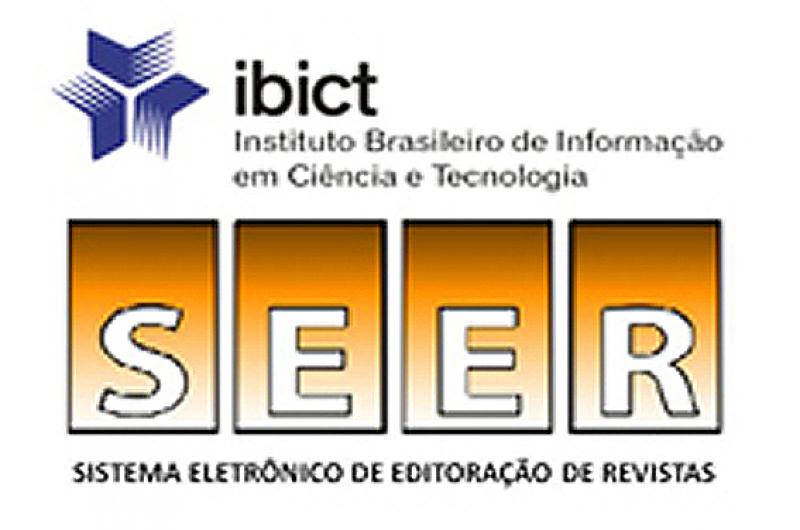Agrophysics: use of reusable containers to control the temperature on the cultivation of lettuce
Visualizações: 192DOI:
https://doi.org/10.31416/rsdv.v3i3.166Keywords:
Solar radiation, shading, luminosityAbstract
We conducted this research in the central hinterland of Pernambuco where there is high incidence of solar radiation, which damages the cultivation of certain plants. Because of this experiment was made with lettuce, reusing containers to control the temperature. Thus, we used an area of 1.0 m² per experimental unit where they were
implanted two seedlings of vegetable crop that has been developed rather than conventionally. The temperature
difference was studied by shading obtained from packaging such as UHT milk and similar containers. The
measurements were taken at 20 minute intervals, as detailed in materials and methods. There were three types of temperature measurements: using an infrared thermometer, a digital multimeter on the thermometer mode and a LM35 temperature sensor coupled to the Arduino microcontroller. The experiment proved efficient in reducing the temperature incident on the plant, because it was always lower than the outside temperature, providing a better development of lettuce. However, to confirm the effectiveness of this method, they are being made other repetitions to study improvement.
References
BEZERRA NETO, F.; ROCHA, R.C.C.;
NEGREIROS, M.Z.; ROCHA, R.H.;
QUEIROGA, R.C.F. Produtividade de alface
em função de condições de sombreamento e
temperatura e luminosidade elevadas.
Horticultura Brasileira, Brasília, v.23, n.2,
p.189-192, abr-jun 2005.
CAMARGO, M.B.P. Exigências bioclimáticas
e estimativa da produtividade para quatro
cultivares de soja no Estado de São Paulo.
Piracicaba, 1984, 96p. Tese (Mestrado em
Agrometeorologia) - Curso de Pós-raduação em
Agronomia, Escola Superior de Agricultura
“Luiz de Queiroz”, Universidade de São Paulo,
CHANG, X.; ALDERSON, P. G.; WRIGHT, C.
J. Solar irradiance level alters the growth of
basil (OcimumbasilicumL.) and its content of
volatile oils. Environmental and
Experimental Botany, v.63, p.216 223, 2008.
DAN, H.A.; CARRIJO, M.S.; CARNEIRO,
D.F.; COSTA, K.A.de P.; SILVA, A.G.
Desempenho de plantas sorgo granífero sobre
condições de sombreamento. Acta
Scientiarum Agronomy, Maringá, v.32, n.4,
p.675-679, 2010.
FILGUEIRA, F. A. R. Novo manual de
olericultura: agrotecnologia moderna na
produção e comercialização de hortaliças. 2a
ed., UFV, 2003.
GATES, D. M. Transpiration and leaf
temperature. Ann. Rev. Plant Physiol., Palo
Alto, v. 19, p. 211–239, 1968.
GOMES, T.M.; BOTREL, T.A.; MODOLO,
V.A.; OLIVEIRA, R.F. Aplicação de CO2 via
água de irrigação na cultura da alface.
Horticultura Brasileira, Brasília, v. 23, n. 2, p
-319, abr-jun 2005.
LIMA, J. P. R.; GATTO, M. F. A economia do
Semiárido de Pernambuco: ainda “sem
produção”?. Economia e Desenvolvimento,
Recife, v. 13, n. 1, 2014.
OTONI, B. S.; MOTA. W. F.; BELFORT, G. R.;
SILVA, A.R.S.; VIEIRA, J. C.B.; ROCHA, L.
de S. Produção de híbridos de tomateiro
cultivados sob diferentes porcentagens de
sombreamento. Revista Ceres, Viçosa, v.59,
n.6, p.816-825, 2012.
PILAU, F. G. BONNECARRÈRE, R. A. G.;
NETO, D. D.; MEDEIROS, S. L. P.;
MANFRON, P. A. Condutância foliar à difusão
de vapor e transpiração em função da
temperatura da folha de plantas de alface sob
cultivo hidropônico. Revista Cientifica Rural,
Bagé, v. 9, n. 2, p. 106-112, 2004.
POLYSACK INDÚSTRIAS Ltda. Malhas
termorrefletoras aluminizadas. Disponível
em:
<http://www.polysack.com/index.php?page_id
=744> Acesso em: 20/05/2016.
PURQUERO L.F.V.; TIVELLI S.W.
Manejo do ambiente em cultivo
protegido. Informações Tecnológicas,
Campinas, 2006. In: IAC, 2006. Disponível
em:
<http://www.iac.sp.gov.br/Tecnologias/MANEJ
O_Cultivo_Protegido/Manejo_Cultivo_protegi
do.httm> Acesso em: 20/05/2016.
RADIN, B.; JÚNIOR, C.R.; MATZENAUER,
R.; BERGAMASCHI, H. Crescimento de
cultivares de alface conduzidas em estufa e a
campo. Horticultura Brasileira, Brasília, DF,
v.22, n.2, p.178-181, 2004.
RAMOS, J.E.L. Sombreamento e tipos de
recipientes na formação de mudas e
produção em alface. 1995. 56 f. (tese
mestrado) – ESAM, Mossoró-RN.
REIS, J.M.R., RODRIGUES, J.F., REIS, M.A.
Comportamento da alface crespa em função do
parcelamento da adubação de cobertura. Gl.
Sci. Technol., Rio Verde, v. 05, n. 02, p.24 –
, 2012.
RODRIGUES, A.B.; MARTINS, M.I.E.G.;
ARAÚJO, J.C.C. Avaliação econômica da
produção de alface em estufa . Informações
Econômicas, São Paulo, v.27, n.1, p.27-33,
SETÚBAL, J.W.; SILVA. A.M.R. Avaliação do
comportamento de alface de verão em
condições de calor no município de Teresina-
PI. Horticultura Brasileira, Brasília, DF, v.10,
n.1, p.69, 1992.
SILVA, E. M. N. C. P. et al. Qualidade de alface
crespa cultivada em sistema orgânico,
convencional e hidropônico. Horticultura
Brasileira, v. 29, n. 02, p. 242-245, 2011.
SOUZA, JO; DALPIAN T; BRAZ, LT.
Desempenho de genótipos de alface crespa em
cultivo protegido. Horticultura Brasileira,
v.27: p.234-236, 2009.
VIEIRA, V.C.R.; CURY, D.M.L. Graus-dias
na cultura do arroz. In: Congresso brasileiro
de Agrometeorologia. Piracicaba-SP, 1997,
Anais. Piracicaba: SBA, 1997. p.47-49.















